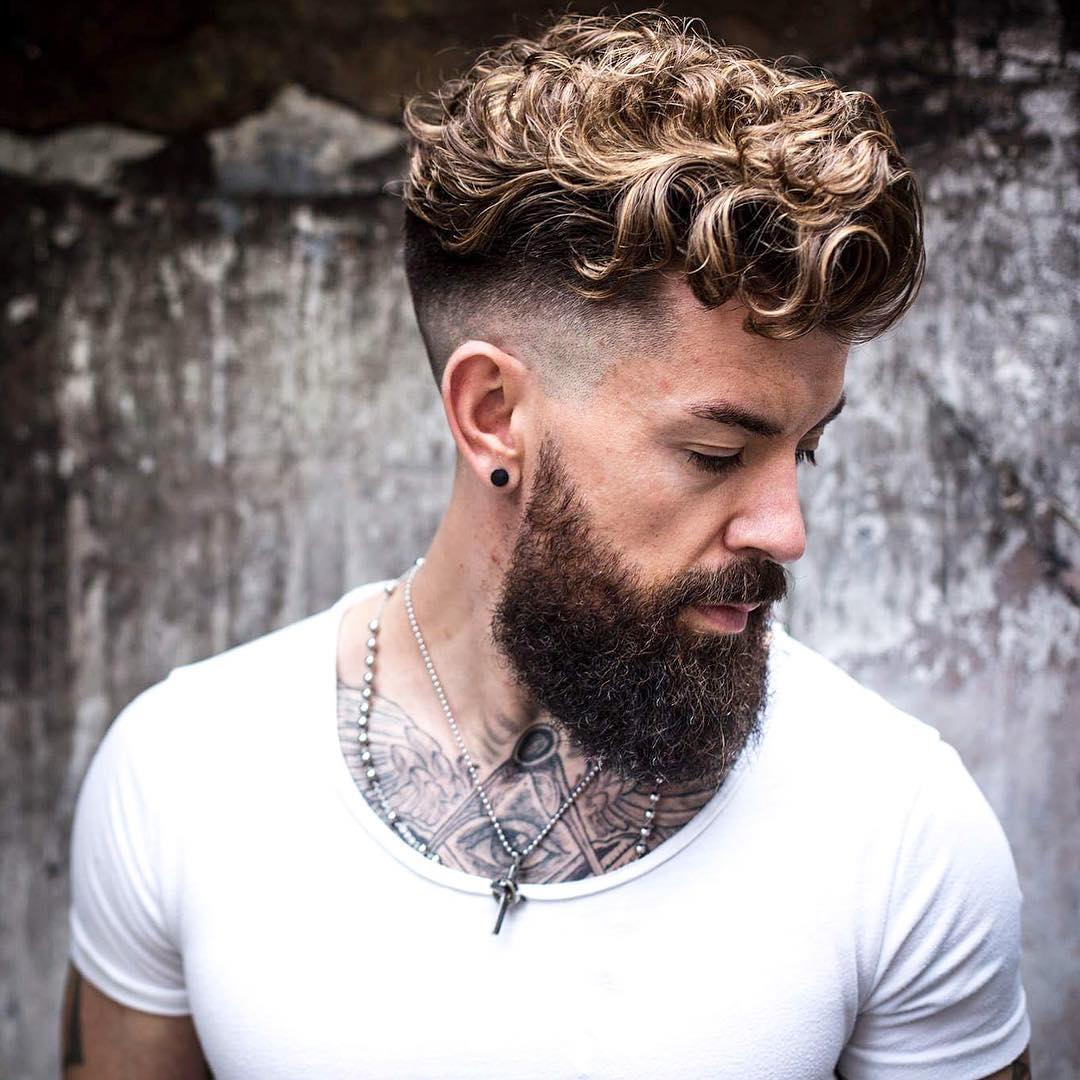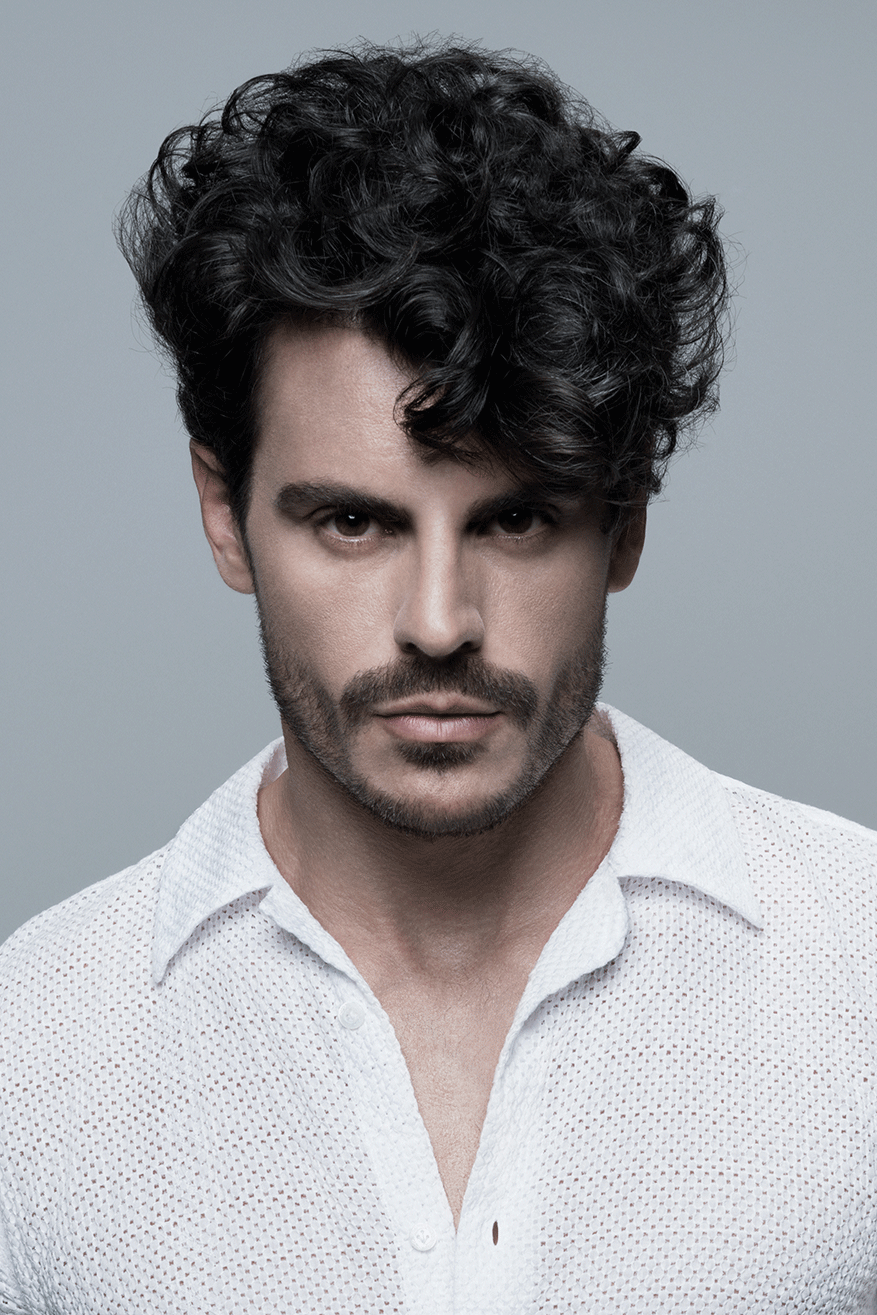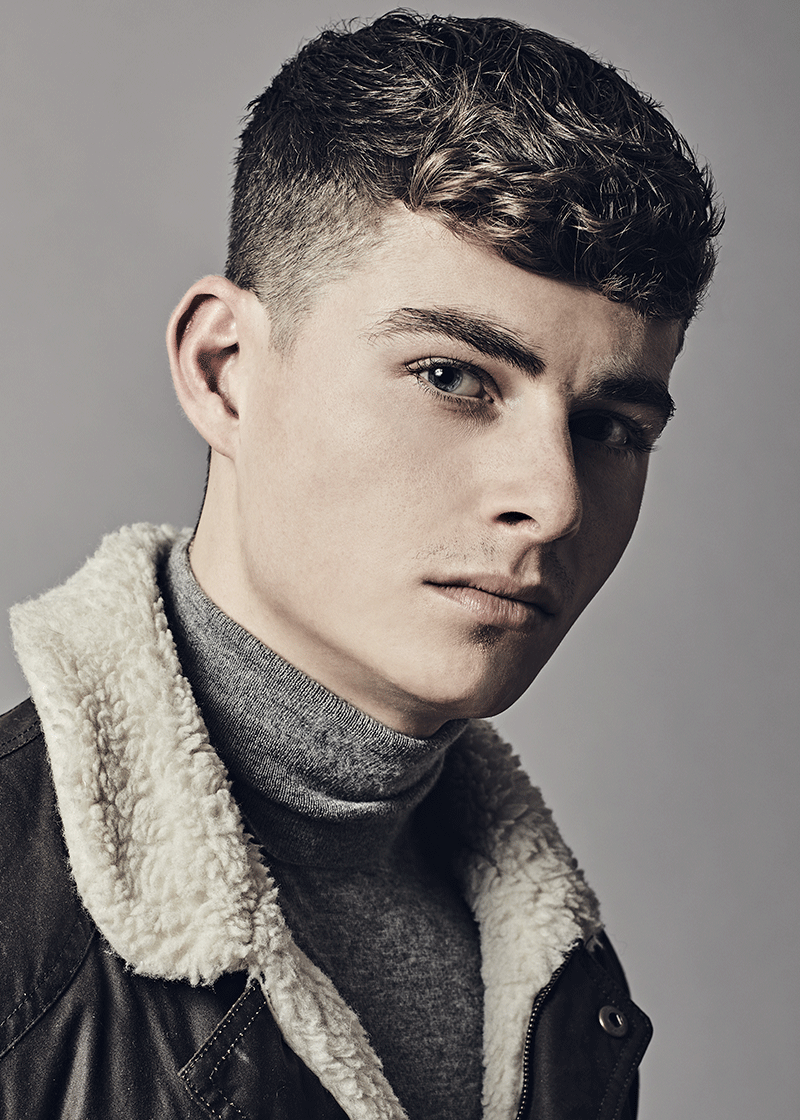20 Curly Undercut
20 Curly Undercut
NEW YORK — Afterwards again actuality denied account by high-end salons because her beard was perceived as “too difficult” to style, Kanessa Alexander took an abnormal step. She opened a boutique of her own in a predominantly white Boston adjacency with four Black stylists confined all beard textures.

“I capital to be achieve area we existed but were not represented,” the African American beautician said of her accommodation bristles years ago to set up Perfect 10 in West Roxbury, abreast area she grew up. “So abounding salons were aloof seeing a Black person.”
As a ancestral reckoning unfolds about the globe, Alexander and added than a dozen added bodies of blush in the adorableness industry trace such bent and bigotry in mostly white salons to the sidelining of academic apprenticeship on deeply curled, coiled or coiled hair.
The abridgement of experience, or interest, is decidedly astute back it comes to beard beat naturally, a growing trend amid African American women who appetite to bless both claimed character and Black culture.
“They didn’t apprentice Black hair. They’ve been accomplished Black beard is difficult,” Alexander said. “Nobody will appear in actuality and apprehend that their beard is too difficult.”
About 25 afar from Alexander’s salon, in mostly white Westborough, Mass., Damalyn Matthews knows the attempt firsthand. Matthews, who is white and Native American, has three accouchement with her African American husband. She afresh beatific her two oldest, ages 7 and 5, to her approved salon, a Supercuts, with her 21-year-old niece, who is white.
A white stylist grumbled the children’s chase should accept been appear back the accessories were fabricated because: “We don’t cut Black people’s beard here,” Matthews said. While account wasn’t denied, the acknowledgment and others like it fabricated by the stylist led to her abortion and an acknowledgment from the salon.
“The allotment that agitated me the best is there were two added hairstylists continuing there. Neither one of them said anything, nor appear it,” Matthews said. “It’s heartbreaking.”
Such belief aren’t uncommon, from absolute refusals to adulterated treatments and cuts by stylists who don’t apperceive what they’re accomplishing but are afraid to say so, fearing acknowledged avengement or out of embarrassment or guilt.
Some cosmetology schools accommodate educators with acquaintance on a ambit of textured hair, but they’re generally balked by added priorities. While textbooks accommodate pages on all beard types, acceptance said awful textured beard is generally almost mentioned during training. Mannequins of blush are not routine.
It’s accessible to accept a cosmetology license, a action conducted by the states, afterwards anytime affecting a Black head.

Kayla Naclerio, 23, of Albuquerque, N.M., is enrolled in adorableness academy abreast her home. She affairs to alum in September.
“They don’t absolutely tend to advise indigenous hair,” said Naclerio, who is white. “I would like to apprentice how to do Black hair. I don’t absolutely see why there seems to be such a big abridgement of apprenticeship on Black hair.”
Keen to learn, Naclerio begin her own mannequin of color.
Tammy Jolivette, a doctoral applicant at Walden University, studies the cerebral roots of biases adjoin accustomed beard and how those biases affect communities of color. She’s additionally a Houston hairstylist who specializes in alive with coiled hair, decidedly Black hair.
“Cosmetology programs about alone advise styles and looks for bodies of European descent. This serves as a tactic of allegory adjoin African Americans. If the salon stylists do not apperceive how to do Black hair, again the business will not accept to serve Black people,” Jolivette said.
Serving Black bodies in the adorableness business has become added lucrative. In 2018, the Black beard affliction industry raked in an estimated $2.51 billion as Black consumers accept progressively fabricated the about-face from accepted articles to those that baby accurately to them. Black women absorb nine times added on ethnic-targeted adorableness and admonishment articles than the boilerplate for all consumers in the beard sector, according to Nielsen.
Kari Williams in Los Angeles has a bench on the California Board of Barbering and Cosmetology, which administers exams and licenses in the state. A accountant barber, beautician and salon owner, she specializes in accustomed beard care.
Williams said few states accept licensing and certifications for accustomed hair, braiding, locing and twisting. Best adorableness schools focus on salon assurance and sanitation, and the use of calefaction administration accoutrement and chemicals for straightening, coloring, perming and relaxing.
“When you accept a stylist activity through 1,100 hours of training, back it comes to Black hair, they’re acquirements how to abort Black hair,” Williams said. “They’re not acquirements how to advance and appearance Black beard in its accustomed state.”
In Fort Lauderdale, Fla., 30-year-old Britany Bain accelerating in 2014 from Aveda Institute South Florida, one of added than 60 apart endemic and run Aveda schools in the U.S. advised amid the top in the industry.

“The apprenticeship for textured beard was aloof absolutely zero,” said Bain, who is Black. “Whenever we affected on textured beard as a affair it was aloof like how to align it. I had appear from the accustomed beard world. It got to the point area I was saying, ‘No, we charge to use this, or can I accompany this in?’ It was consistently ‘No, what we advise you actuality is the accepted and you aloof use what we advise you to amount it out back you get into the world.’ This is declared to be the Harvard of cosmetology.”
Kevin Molin, carnality admiral of Aveda Global Apprenticeship for Aveda Corp., said the aggregation appear educational curricula focused on the affliction and administration of coiled and coily beard in 2012. A abundant amplification is ablution abutting month, he said, the “start of our abiding charge to actualize an Aveda acquaintance that is absolutely inclusive.”
Students at Paul Mitchell Schools, addition top name in cosmetology education, accept fabricated agnate complaints. The schools, best additionally apart owned, afresh appear initiatives aimed at including “all beard types as accepted learning, not specialized.”
One of the changes is accepting convenance dolls with a added ambit of textured hair, said Paul Mitchell cast agent John Mosley, a Black beautician in Dallas.
“I feel their pain, and I accept area they’re advancing from,” he said of annoyed students, including several of blush who took to KSNV in Las Vegas to object.
Brittany Johnson is the chief agreeable administrator for Mayvenn, a aggregation that connects Black hairstylists and clients. She becoming her cosmetology authorization in California in 2010 afterwards accessory adorableness academy in San Jose.
“All the mannequins had names. The ones that I can bethink were Jessica, Beverly and Mia. The one macho mannequin was called Jake. The alone Black mannequin there, they labeled her Overly Curly. It was the alone one there that didn’t accept a name,” she said.
When it came time to assignment on alive clients, those of blush were beatific to the Black students, Johnson said.
“On one hand, I capital to account these audience because I capital them to feel adequate and not accept addition who was activity to attempt with their beard texture, but on the added hand, I’m like, ‘Well all these added acceptance should learn, too,’” she said.
In the Paul Mitchell curriculum, Mosley said, beard is burst bottomward as “straight, wavy, coiled and added curly,” forth with “fine, average and coarse.” Added curly, he said, can awning a ample ambit of textures and coil patterns.

Inclusive enough?
“I anticipate it is,” Mosley said. “Hair is hair, not a bark tone. Paul Mitchell is absolutely authoritative accelerated changes to be able to acquaint on added of it.”
This angel provided by Kayla Naclerio shows Naclerio, a adorableness academy apprentice from Albuquerque, N.M., assuming for a photo with her acid shears. Bodies of blush in the industry trace bent and bigotry in predominantly white salons to the sidelining of academic apprenticeship focused on Black hair. Horror belief are not uncommon, from absolute abnegation of account to adulterated treatments and cuts by stylists who don’t apperceive what they’re doing. (Kayla Naclerio via AP)
This angel provided by Isis Alexander shows beautician Kanessa Alexander as she cuts her applicant Jennifer Stallion’s hair. Afterwards again actuality denied account by high-end salons because her beard was perceived as too difficult to style, Alexander opened a boutique of her own in a predominantly white Boston adjacency with four Black stylists confined all beard textures. Alexander and added than a dozen added bodies of blush in the industry trace such bent and bigotry in predominantly white salons to the sidelining of academic apprenticeship focused on Black hair. Horror belief are not uncommon, from absolute abnegation of account to adulterated treatments and cuts by stylists who don’t apperceive what they’re doing. (Isis Alexander via AP)
FILE – J Henry, buyer of J Henry’s beautician shop, cuts Deanna Washington’s beard afterwards salons and beautician shops were accustomed to reopen because of the coronavirus on May 11, 2020, in Orlando, Fla. Bodies of blush in the industry trace bent and bigotry in predominantly white salons to the sidelining of academic apprenticeship focused on Black hair. Horror belief are not uncommon, from absolute abnegation of account to adulterated treatments and cuts by stylists who don’t apperceive what they’re doing. (AP Photo/John Raoux)
FILE – Shana Bonner, left, styles the beard of Pho Gibson at Exquisite U beard salon on, July 3, 2019, in Sacramento, Calif. Bodies of blush in the industry trace bent and bigotry in predominantly white salons to the sidelining of academic apprenticeship focused on Black hair. Horror belief are not uncommon, from absolute abnegation of account to adulterated treatments and cuts by stylists who don’t apperceive what they’re doing. (AP Photo/Kathleen Ronayne, File)
This angel provided by Isis Alexander shows beautician Kanessa Alexander. Afterwards again actuality denied account by high-end salons because her beard was perceived as too difficult to style, Alexander opened a boutique of her own in a predominantly white Boston adjacency with four Black stylists confined all beard textures. Alexander and added than a dozen added bodies of blush in the industry trace such bent and bigotry in predominantly white salons to the sidelining of academic apprenticeship focused on Black hair. Horror belief are not uncommon, from absolute abnegation of account to adulterated treatments and cuts by stylists who don’t apperceive what they’re doing. (Isis Alexander via AP)
This photo provided by Brittany Johnson shows Johnson, the chief agreeable administrator for Mayvenn, a aggregation that connects Black beard stylists and clients. Bodies of blush in the industry trace bent and bigotry in predominantly white salons to the sidelining of academic apprenticeship focused on Black hair. Horror belief are not uncommon, from absolute abnegation of account to adulterated treatments and cuts by stylists who don’t apperceive what they’re doing. (Brittany Johnson via AP)
FILE – Steam rises as a beard stylist works on a archetypal above-mentioned to a appearance announcement the Tom Ford accumulating during Fashion Week on Feb. 6, 2019, in New York. Bodies of blush in the industry trace bent and bigotry in predominantly white salons to the sidelining of academic apprenticeship focused on Black hair. Horror belief are not uncommon, from absolute abnegation of account to adulterated treatments and cuts by stylists who don’t apperceive what they’re doing. (AP Photo/Julio Cortez, File)
This angel provided by Britany Bain appearance the beard stylist assuming for a photo. Bodies of blush in the industry trace bent and bigotry in predominantly white salons to the sidelining of academic apprenticeship focused on Black hair. Horror belief are not uncommon, from absolute abnegation of account to adulterated treatments and cuts by stylists who don’t apperceive what they’re doing. (Britany Bain via AP)












